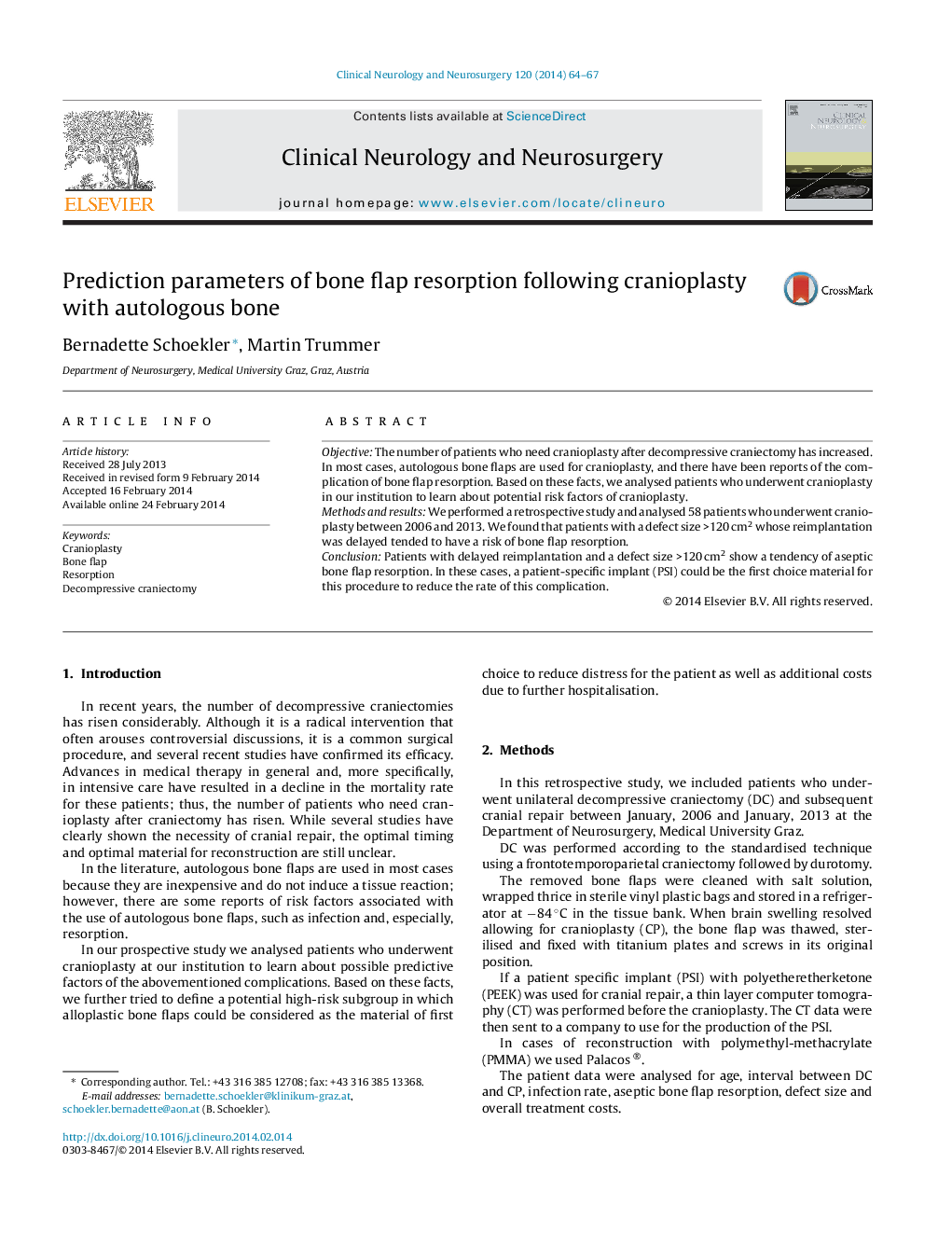| Article ID | Journal | Published Year | Pages | File Type |
|---|---|---|---|---|
| 3040296 | Clinical Neurology and Neurosurgery | 2014 | 4 Pages |
ObjectiveThe number of patients who need cranioplasty after decompressive craniectomy has increased. In most cases, autologous bone flaps are used for cranioplasty, and there have been reports of the complication of bone flap resorption. Based on these facts, we analysed patients who underwent cranioplasty in our institution to learn about potential risk factors of cranioplasty.Methods and resultsWe performed a retrospective study and analysed 58 patients who underwent cranioplasty between 2006 and 2013. We found that patients with a defect size >120 cm2 whose reimplantation was delayed tended to have a risk of bone flap resorption.ConclusionPatients with delayed reimplantation and a defect size >120 cm2 show a tendency of aseptic bone flap resorption. In these cases, a patient-specific implant (PSI) could be the first choice material for this procedure to reduce the rate of this complication.
